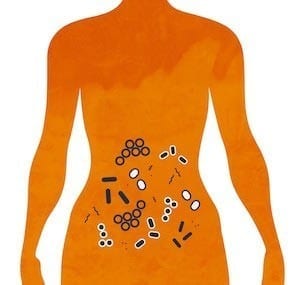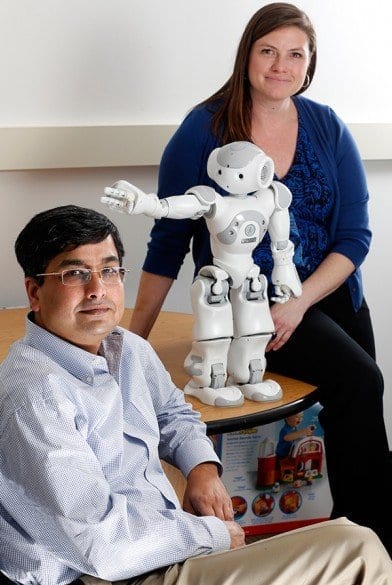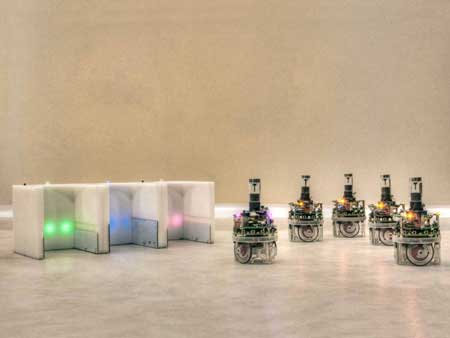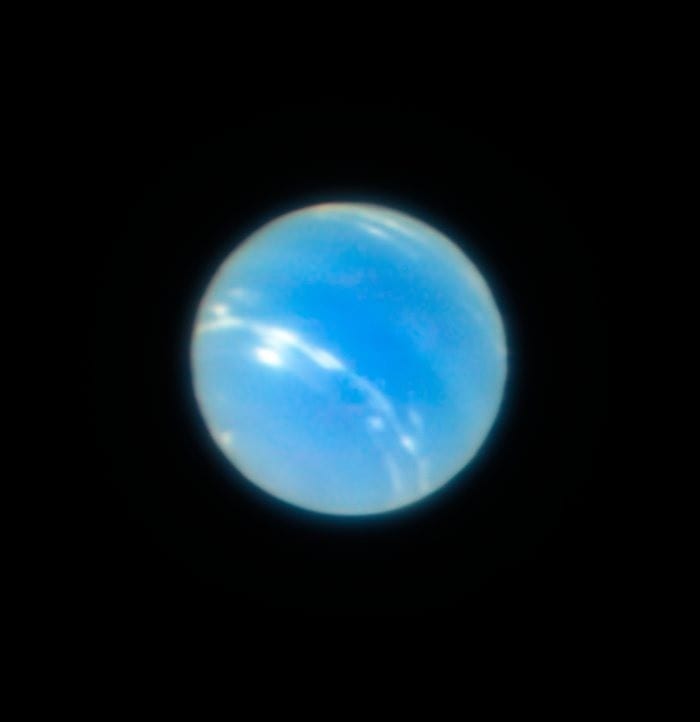
The microbiome is the collection of microorganisms, such as bacteria, that naturally live inside us. New research suggests the microbiome determines autism risk.
• The mother’s microbiome, the collection of microscopic organisms that live inside us, determines the risk of autism and other neurodevelopmental disorders in her offspring, new research from the UVA School of Medicine shows.
• The microbiome can be manipulated by changing what we eat, by consuming beneficial bacteria known as probiotics or even by transplanting fecal material from one person to another. This suggests simple ways we might prevent the development of autism.
• The UVA researchers prevented the development of autism-like disorders in mice by blocking an inflammatory molecule produced by the immune system – a molecule already implicated in multiple sclerosis and rheumatoid arthritis.
• The discovery could also offer a way to detect autism early in pregnancy.
The risk of developing autism-spectrum disorders is determined by the mother’s microbiome – the collection of microorganisms that naturally live inside us – during pregnancy, new research from the School of Medicine suggests. The work raises the possibility that preventing forms of autism could be as simple as an expectant mom modifying her diet or taking custom probiotics.
Further, the UVA scientists were able to use their discovery to prevent the development of autism-like neurodevelopmental disorders in lab mice. They found they could halt the development of such disorders by blocking a particular inflammatory molecule produced by the immune system. Targeting this molecule, interleukin-17a, offers another potential avenue for preventing autism in people, the researchers say. They caution, however, that this approach would be much more complex because of the risk of side effects.
“We determined that the microbiome is a key contributor in determining susceptibility [to autism-like disorders], so it suggests that you could target either the maternal microbiome or this inflammatory molecule, IL-17a,” said lead researcher John Lukens, PhD, of UVA’s Department of Neuroscience. “You could also use this [IL-17a] as a biomarker for early diagnosis.”
Microbiome and Autism Risk
The groundbreaking work from Lukens and his colleagues sheds light on the complex relationship between the health of the mother’s microbiome and the healthy development of her children. “The microbiome can shape the developing brain in multiple ways,” explained Lukens, of UVA’s Center for Brain Immunology and Glia (BIG) and UVA’s Carter Immunology Center. “The microbiome is really important to the calibration of how the offspring’s immune system is going to respond to an infection or injury or stress.”
But an unhealthy microbiome in the mom can create problems: Lukens’ work shows that it can make her unborn offspring susceptible to neurodevelopmental disorders. The researchers found that the IL-17a molecule was a key contributor to the development of autism-like symptoms in lab mice.
The good news: The microbiome can be modified easily, either through diet, probiotic supplements or fecal transplant. All of these approaches seek to restore a healthy equilibrium among the different microorganisms that live in the gut.
“In terms of translating our work to humans, I think the next big step would be to identify features of the microbiome in pregnant mothers that correlate with autism risk,” Lukens said. “I think the really important thing is to figure out what kind of things can be used to modulate the microbiome in the mother as effectively and safely as we can.”
Another Option for Preventing Autism
Blocking IL-17a also might offer a way to prevent autism, but Lukens said that path carries much more risk. “If you think about pregnancy, the body is basically accepting foreign tissue, which is a baby,” he said. “As a result, maintenance of embryonic health demands a complex balance of immune regulation, so people tend to shy away from manipulating the immune system during pregnancy.”
IL-17a previously has been implicated in conditions such as rheumatoid arthritis, multiple sclerosis and psoriasis, and there are already drugs available that target it. But Lukens noted that the molecule has an important purpose in stopping infections, especially fungal infections. Blocking it, he said, “could make you susceptible to all kinds of infections.” And doing so during pregnancy could have complex ripple effects on a child’s development that scientists would need to sort out.
For their next steps, Lukens and his team plan to explore the potential role of other immune molecules in the development of autism and other such conditions. IL-17a may be just one piece in a much larger puzzle, he said.
While Lukens’ work links the immune system with neurodevelopmental disorders, he emphasized that this in no way suggests that vaccines are contributing to the development of autism. “There’s a definite link between the immune response and the developing brain,” he said. “It just doesn’t have anything to do with vaccines. It’s much, much earlier.”
Lukens’ work is but the latest research from UVA to speak to the importance of the microbiome in maintaining good health. For example, one of Lukens’ colleagues in the Department of Neuroscience, Alban Gaultier, PhD, found that probiotics in yogurt can reverse depression symptoms.
Learn more: Autism Risk Determined By Health of Mom’s Microbiome, UVA Finds
The Latest on: Autism risk
[google_news title=”” keyword=”autism risk” num_posts=”10″ blurb_length=”0″ show_thumb=”left”]
via Google News
The Latest on: Autism risk
- New biomarkers identified for predicting psychosis risk in 22q11.2 deletion syndromeon May 1, 2024 at 7:19 pm
A recent study led by UC Davis Health researchers provides new insights into the molecular changes linked to the rare genetic condition 22q11.2 deletion syndrome, or 22q.
- Autism Decal Program Brings Compassionate Policing to Residentson April 30, 2024 at 12:33 pm
My son Sebastian has always been my little boy. But as I watched him develop into a young man, my fear of how the world might react to him as an adult on the spectrum has grown along with him. To me, ...
- Prenatal exposure to smoking may raise risk of autism and attention-deficit disorders in newborns: Studyon April 30, 2024 at 8:30 am
Japan: A recent study published in Cells has identified prenatal nicotine exposure (PNE) to be a risk factor for comorbidity with attention-deficit/hyperactive disorder (ADHD) and autism spectrum ...
- New $2 million research initiative will study heart and brain health in people with autismon April 30, 2024 at 8:30 am
According to the U.S. Centers for Disease Control and Prevention, 1 in 36 children and 1 in 45 adults in the U.S. have autism, a broad range of conditions characterized by challenges with social ...
- Prince George's Co. police receive 500 kits to help interact with children with autismon April 30, 2024 at 8:05 am
To offer better communication with children with autism, the Prince George's County police received a donation of 500 Autism Sensory Kits.
- 8 Early Signs of Autism in Infants & Toddlers That Every Parent Should Knowon April 30, 2024 at 7:54 am
Could your child have autism? Here are the early signs parents should be aware of — because the earlier you get a diagnosis, the easier life will be for your child.
- X-chromosome inactivation may reduce autism risk, study in mice suggestson April 30, 2024 at 1:32 am
A study in mice suggests how chromosome inactivation may protect girls from a type of autism disorder inherited from their father's X chromosome.
- Netflix Green-Lights More Episodes Of Autism Dating Showon April 29, 2024 at 8:32 pm
An Emmy-winning series that follows people with autism as they search for love is getting another season. Netflix said this month that it will renew “Love on the Spectrum U.S.” for a third season. The ...
- Are parental psychiatric disorders related to the risk of autism spectrum disorder in the offspring?on April 26, 2024 at 4:31 am
The potential association between psychiatric disorders in parents and the risk of the offspring developing autism spectrum disorder.
via Bing News










